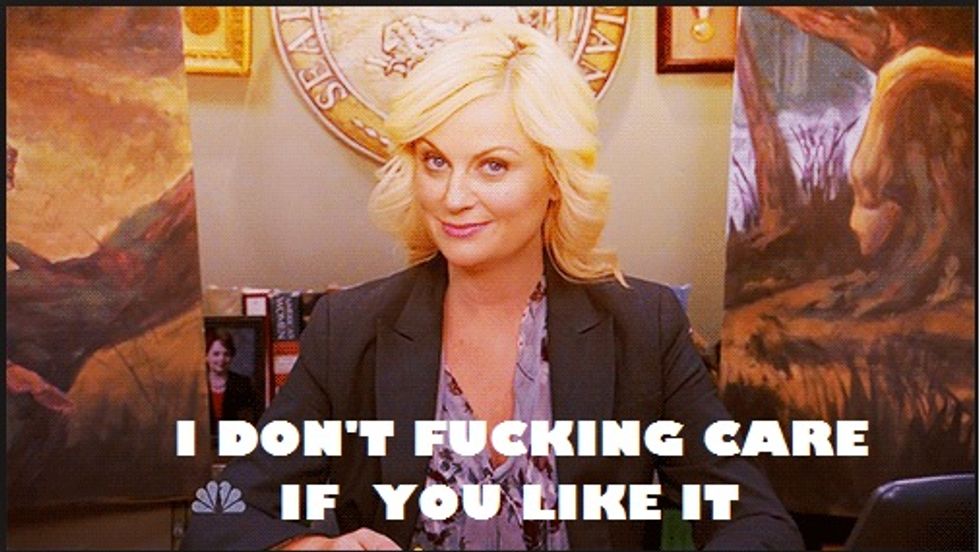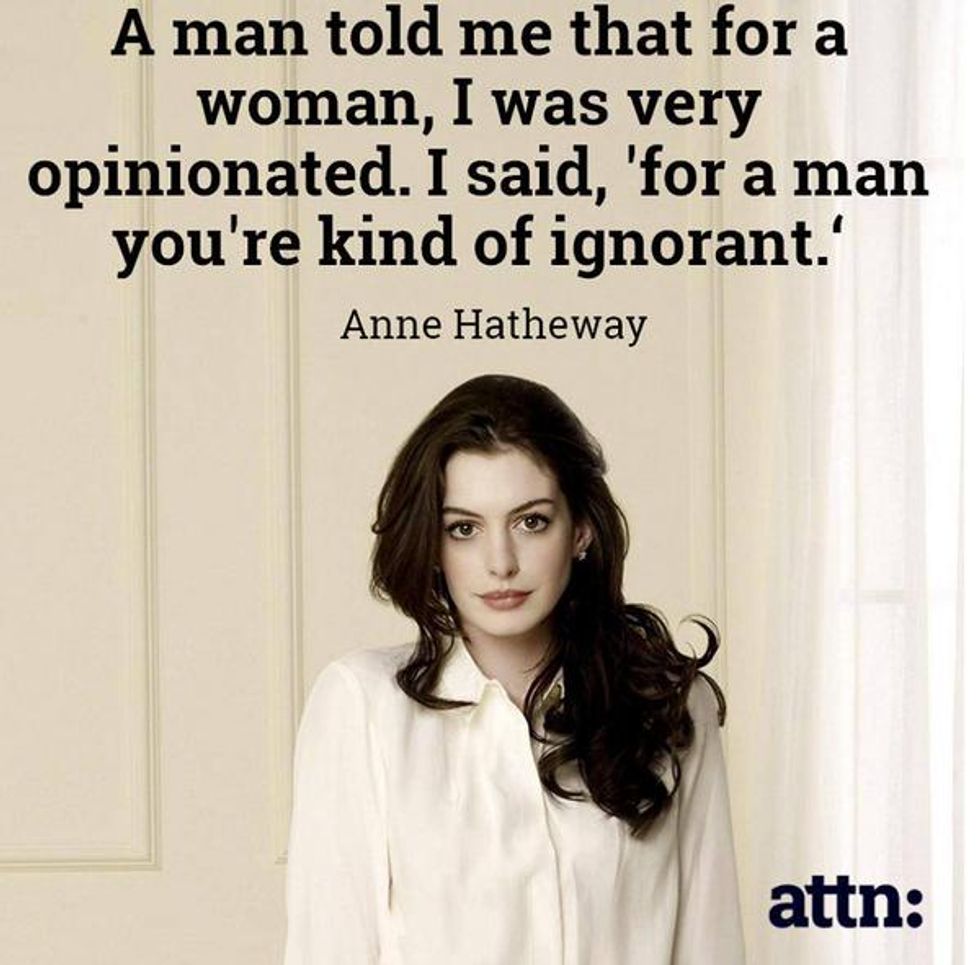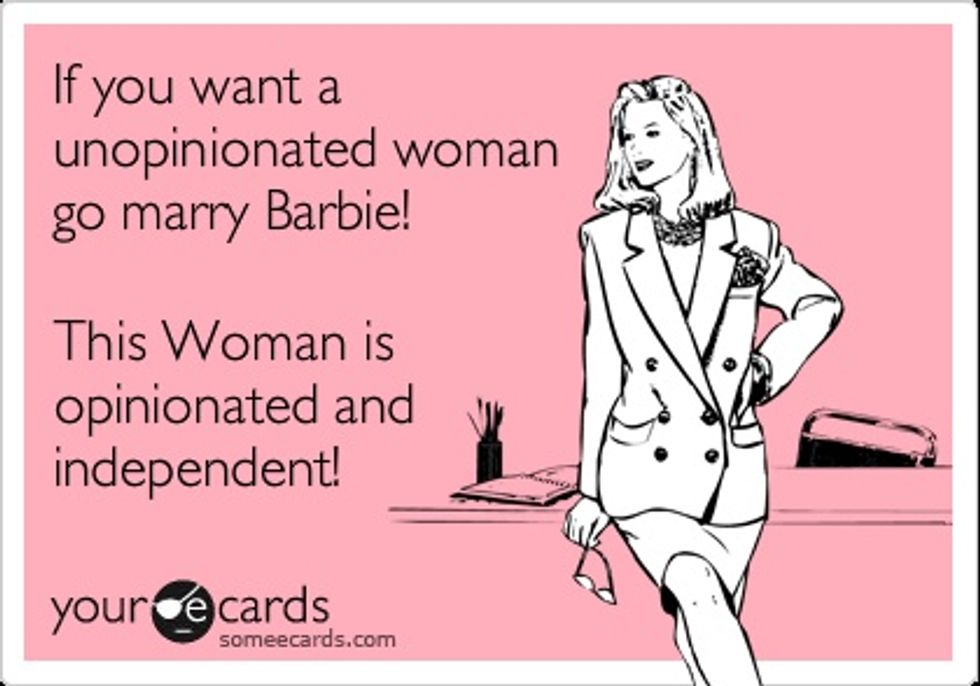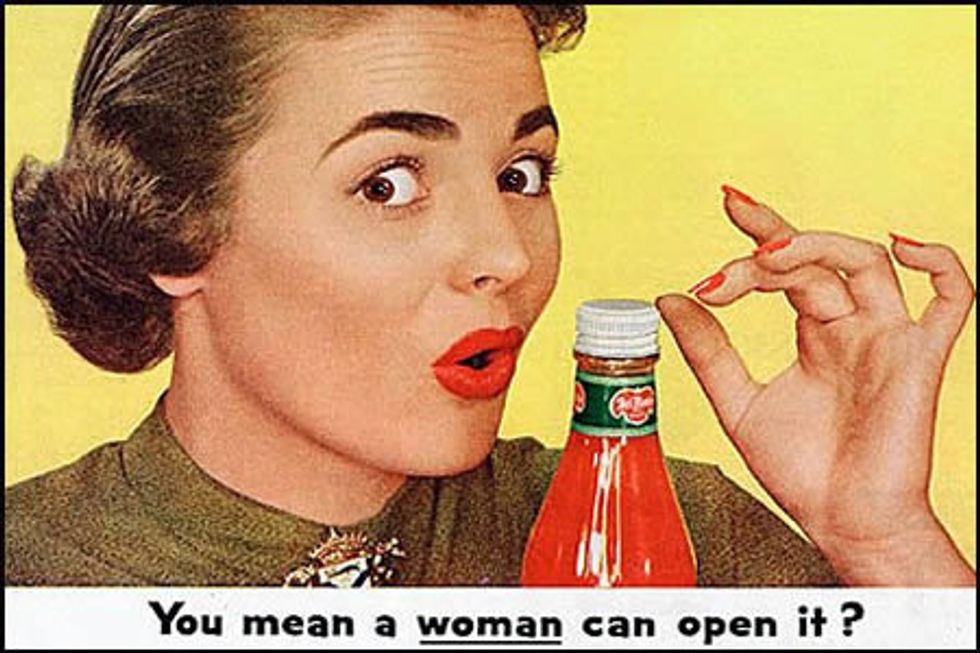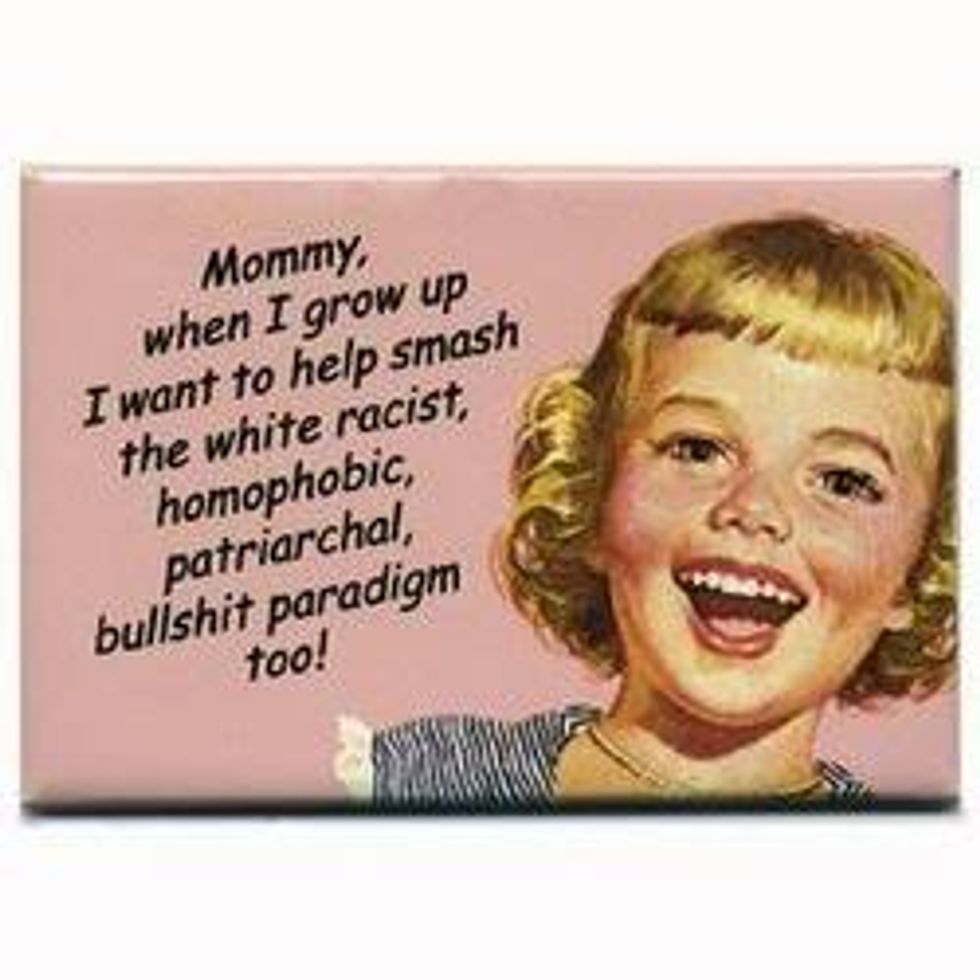From the very beginning of our socialization, women are taught to never be "too" anything. Don't be too bossy, or too loud, or too promiscuous, or too opinionated. We are told that if we want people to listen to us, we must strike this perfect balance of delicateness, intelligence, and purity. Cross any of those lines, and you immediately enter dangerous territory. Your words, no matter how well spoken, will be heard through the filter of a woman: hormone crazed and pretentious in the eyes of the patriarchy.
Anyone who knows me, even as just an acquaintance, probably wouldn’t have a hard time believing that for much of my life, I have been “too” something. In recent years, I have been called “ too opinionated” once, twice, maybe a hundred times. However, only recently have I begun to understand why whenever someone refers to me as an “opinionated woman,” “opinionated young lady,” or "opinionated girl,” I take it more as an insult than a compliment.
Whenever I have been told this, I have always heard it cynically, wondering if the speaker was being sarcastic, stereotyping me, or just plain insulting me. I mean, I have never heard two men arguing and one of them say to the other, “well, you are a very opinionated boy…” But my most recent encounter with the phrase was my motivation for writing this article.
A couple of weeks ago, my male friend and I were having a debate over something political. Since this is a field I study in school and have become fairly well versed in, I was confidently stating my side of the argument, backing it up with facts and statistics. My male counterpart seemed to just be playing Devils advocate, and I became annoyed with the conversation quickly. Realizing that what I was saying was never going to get through to him, I politely opted out of the argument, to which my pal replied something along the lines of an apology for upsetting me. I told him that I wasn't upset; I simply wasn't going to continue on because I felt like he was trying to paint me out to be a bitch for trying to inform him. Almost immediately, he barked back,
"You know what? Maybe you are being kind of a bitch."
This statement really struck me in its frankness. Immediately, I felt smaller. It hurt me a lot to know that in trying to spread the knowledge I value so much, this was instead how I was perceived. No matter how informed I was, how kindly and calmly I tried to get my point across, my intelligence came across as arrogance. As I drove home that night, I thought about how many people I may have offended in the past for simply standing up for what I believed in. It wasn't a good feeling.
One may be able to argue that I am being too sensitive, or that being called “opinionated” means the same for men and women, but this simply would not be true. For men, having an opinion makes you intellectual. For women, having an opinion makes you a bitch. Women, for centuries, have had their opinions and feelings dismissed by society. We have been ignored, ridiculed, and even punished for using our brains. Let us not forget the times when women were incarcerated for trying to vote, or had to publish their work under a male’s name. Let’s not forget that even now, women are ridiculously under-represented in the government, hence silencing the opinions of women in the way our country operates.
In addition, women are often written off as too emotional for logic to penetrate their psyche. God forbid you raise your voice, or curse, or even use hand gestures during an argument, because more than likely it will be assumed you are too worked up to think clearly. One recent example I can think of is when Fox News anchor Megyn Kelly called Donald Trump out on his previous sexist statements. For the record, this was not even an opinion; She simply was stating what was true (similar to what I did in the argument with my friend). Trump called her statements ridiculous, refused to give a response, and later incited that Kelly attacked him because she was menstruating.
Men, on the other hand, are encouraged to have opinions. If a man had posed the same question to Trump, though he may not have answered it, I doubt he would have used gender in his counter attack. In general, men occupy most of the jobs that require you to be “opinionated,” such as government positions and news pundits.
Using opinionated as a code word for bitch is extremely harmful, not just to the woman being targeted, but to everyone. As a little girl, being called “bossy” (something I was called a lot as a kid) for wanting to have your voice heard encourages girls as they grow older to keep their ideas inhibited. They learn that there is no space for them, that they should not try to take charge, that they belong on the back burner with the rest of the girls who were shot down. It’s not hard to see how this can affect their confidence as they grow into adulthood, and how they then are taught to either conform to society’s expectations or prepare to be judged harshly for expressing themselves. Yes, it is possible for this to happen to boys, too; But it would be a denial of reality to say that this is not a problem that marginally affects girls more.
As a society, we need to move past the notion that women can’t have real opinions unless it is about lipstick or baking. We cannot continue to silence half of our population. Today, it is beyond important that we are raising young women that will stand up for themselves and not take the shit that has been dished out on their mothers and grandmothers for generations past. I deserve to be heard, and my words deserve to be thoughtfully considered. At the end of the day, I refuse to let the fear of being shamed for my opinions stop me from articulating them. I am not here to appease you. I am here to challenge your way of thinking, to show you a new perspective. And if someone has a problem with that, I can always quote the amazing Amy Poehler, in saying: “I don’t fucking care if you like it.”

